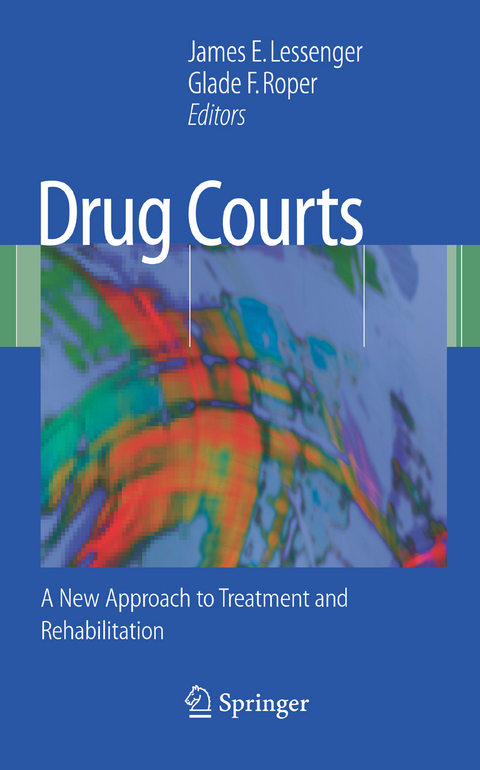
Drug Courts
Springer-Verlag New York Inc.
978-1-4419-2442-1 (ISBN)
I’ve done them all, and I’m not talking about stage, screen, and television. I stopped taking drugs in the 1970s and stopped smoking in the 1980s. I ceased drinking in the 1990s when I needed a liver transplant and my doctors told me they wouldn’t do it if I continued drinking. So, I stopped, got the transplant, and became a friend of Bill W. Stopping was the best thing I ever did, second to marrying Maj. My substance abuse started, like most people’s, in high school through peer pressure. It progressed while I was on the stage and in the Air Force, where alcohol was the drug of choice. The problem continued as I worked in motion pictures where the day ended with drinks. When I ? nally made it big in television, I was drinking a case of champagne a day. I tell myself that I did this because of my insecurities about being at the top, but it also tasted good. Looking back and having read some of the things in this book, I realize that I have the addictive personality and the genetic predisposition to be a substance abuser. All that was necessary was a situation in which I was near drugs and had peer pressure to get me going.
Dr. James Lessenger has practiced occupational and environmental medicine for more than two decades in California's San Joaquin Valley. In addition to keeping an active clinical practice, Lessenger is a Medical Review Officer on drug testing for the Department of Transportation and a consultant to many corporations and companies on drug testing, workplace drug issues, and industrial injuries. Dr. Lessenger has been a consultant to the Tulare County drug court since its inception in 1996 and was responsible for an exhaustive review of the system in 2001. Glade F. Roper, JD is the presiding Adult Drug Court judge for rural Tulare County. He started and has maintained the Drug Court since 1996 and has been a jurist in the county since 1989. He created and has taught the Advanced Drug Court Track at the National Rural Institute on Alcohol and Drug Abuse for the last four years and speaks across the nation about rural drug courts and treatment issues.
to Drug Courts.- The Disease of Addiction.- The Biologic Basis of Drug and Alcohol Addiction.- The Sociologic Basis of Drug and Alcohol Addiction.- The Physical Consequences of Drug and Alcohol Abuse.- Drugs and Alcohol in Pregnancy and the Affected Children.- The Social Consequences of Drug and Alcohol Abuse.- The Pharmacologic Treatment of Alcohol and Drug Addiction.- Co-Occurring Substance Abuse and Mental Health Disorders.- Counseling Strategies.- Client Life Skills Training.- Self-Help and Mutual Aid Organizations.- Building Supportive Services in Drug Courts.- Drug Testing Methods.- The Drug and Alcohol Testing Process.- Drug Testing Scams.- Analysis of Drug Testing Results.- Juvenile Drug Courts.- Drug Court Organization and Operations.- The Legal Basis for Drug Courts.- Drug Court Funding Options.- Strategies for Administering Rewards and Sanctions.- Roadblocks to Success.- Probation Strategies.- Relapse.- Law Enforcement and Drug Courts.- Record Keeping and Statistics.- Policy Options for the Future.- Case Study of Drug Court Intervention.
| Zusatzinfo | 10 Illustrations, black and white; XVIII, 486 p. 10 illus. |
|---|---|
| Verlagsort | New York, NY |
| Sprache | englisch |
| Maße | 155 x 235 mm |
| Themenwelt | Geisteswissenschaften ► Psychologie |
| Medizin / Pharmazie ► Gesundheitswesen | |
| Medizin / Pharmazie ► Medizinische Fachgebiete ► Intensivmedizin | |
| Medizin / Pharmazie ► Medizinische Fachgebiete ► Psychiatrie / Psychotherapie | |
| Recht / Steuern ► EU / Internationales Recht | |
| ISBN-10 | 1-4419-2442-6 / 1441924426 |
| ISBN-13 | 978-1-4419-2442-1 / 9781441924421 |
| Zustand | Neuware |
| Haben Sie eine Frage zum Produkt? |
aus dem Bereich


